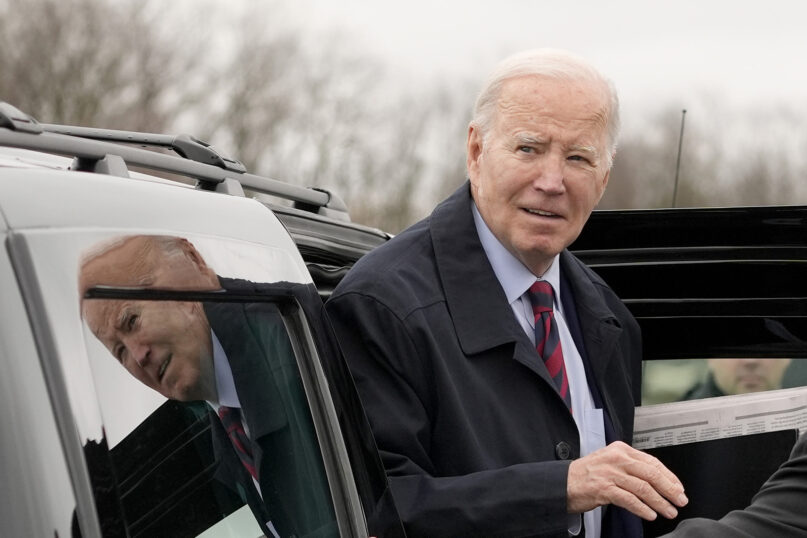(RNS) — According to a Fox News Election Day exit poll, 54% respondents who identified themselves as Jewish said they had cast their presidential vote for Kamala Harris, and 46% for Donald Trump.
It’s not unreasonable to assume that a large percentage of the latter segment were Orthodox Jews. Support for the former president in my community has run high, for an assortment of reasons, whatever their soundness, for years. The lopsided vote tallies in heavily Orthodox neighborhoods clearly bear out that fact.
While many Orthodox Jews support him politically, I don’t think any harbor feelings like those expressed by Gregory Rice, a delegate from Rhode Island to the Republican National Convention in August, who said after the first assassination attempt on the former president, Trump “can definitely be God-like for many people, myself included.”
But many Jewish fans of the president-elect may nevertheless see some degree of divine guidance in Trump’s remarkable political comeback, despite all the legal and personal baggage he carried. Although the future is no one’s to see, especially in this case, those Jewish Trump supporters are expecting an incoming administration that will be more strongly supportive of Israel’s war against Iranian proxies; more determinedly opposed to abortion-on-demand and gender fluidity; and favoring of Orthodox-popular initiatives like school choice.
But there’s an essential ideal in Judaism that no Orthodox Jew can ignore: the concept of “hakarat hatov.”
That Hebrew phrase, which translates literally as “recognition of the good,” means something akin to gratitude but implies a subtle something more. It means focusing deeply on good that was done, true “recognition” of its goodness and acknowledgment of the same.

President Joe Biden arrives to board Air Force One, Tuesday, March 5, 2024, in Hagerstown, Md. (AP Photo/Alex Brandon)
And it is owed, by all Jewish Americans, to President Joe Biden, no matter their political leanings or larger judgment of the man.
The fact that Biden has had disagreements with Israeli Prime Minister Netanyahu may have disturbed some Jews, but it cannot be allowed to obscure for any of us what the president has done for Israel, and for American Jewry. Hakarat hatov, when merited, must be felt. And, here, it is merited.
Biden defended Jewish rights and Israel for decades before he entered the White House, but during his presidential tenure, he frequently and quite publicly condemned antisemitism, even in its common costume of “pro-Palestinian” sentiment.
Mere days after Hamas’ Oct. 7 attack, the president flew to Israel — the first time a sitting U.S. President has traveled to the country during a time of war — to affirm his support for Israel’s right and duty to defend its people from Hamas and its brothers-in-evil.
It’s a matter of public record that Biden provided intelligence to Israel that aided its June rescue of four hostages held by Hamas. American intelligence teams have been in Israel throughout the current war, in fact, assisting in the effort to achieve the country’s goals. Not to mention the administration’s proposal and passage of an unprecedented $14.3 billion in supplemental aid to Israel.
He ordered a veto of a U.N. Security Council resolution intended to give the Palestinian Authority the status of a full member state and dismissed the International Criminal Court’s application for arrest warrants against Israeli leaders as “outrageous.”
In the face of a direct Iranian attack on Israel, President Biden positioned U.S. military assets — including two carrier strike groups — in the region and had the U.S. lead a coordinated response with Israel and other Western allies to intercept 99% of Iran’s drones and missiles, which saved Israeli lives.
Here at home, the Biden administration unveiled the most comprehensive national strategy to counter antisemitism in U.S. history, mobilizing more than two dozen federal agencies to take steps to prevent antisemitic attacks.
And Biden full-throatedly condemned antisemitic incidents that took place in and around Columbia University, calling them “antisemitic, unconscionable, and dangerous,” saying, “There should be no place on any campus, no place in America, for antisemitism or threats of violence against Jewish students.”
He also signed increased funding for the Nonprofit Security Grant Program into law, bolstering funding to help secure synagogues and other Jewish institutions.
And some hakarat hatov, at least to my lights, is due the president for his grace in the wake of his party’s loss in the recent presidential election.
“We accept the choice the country made,” he said from the White House Rose Garden. “I’ve said many times, you can’t love your country only when you win. You can’t love your neighbor only when you agree.” And he called for Americans to “see each other not as adversaries but as fellow Americans” and to “bring down the temperature.”
I hope to see the most optimistic projections of the new Trump administration become reality. But, at the same time, I insist on remembering, too — and focusing upon — all the good that emerged from 1600 Pennsylvania Avenue over the past four years.
It’s an undeniably Jewish thing to do.
(Rabbi Avi Shafran writes widely in Jewish and general media and blogs at rabbishafran.com. The views expressed in this commentary do not necessarily reflect those of Religion News Service.)

